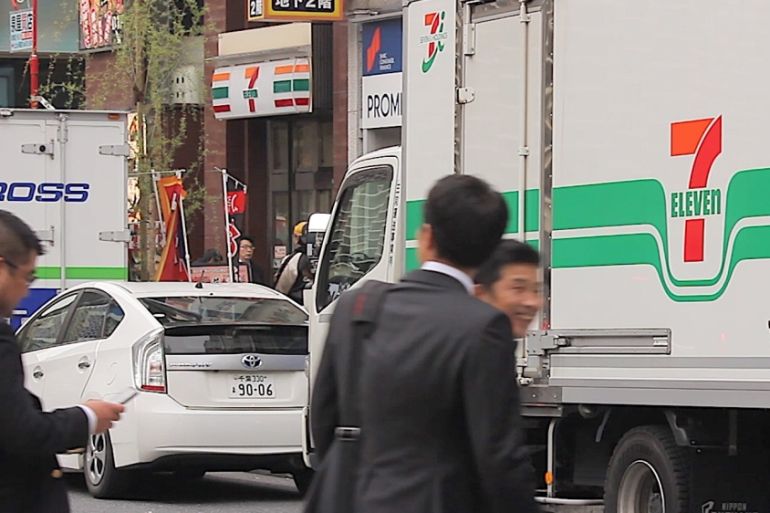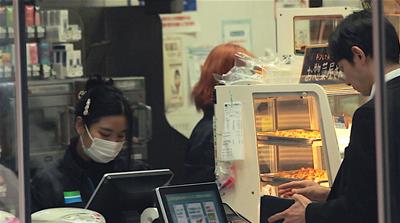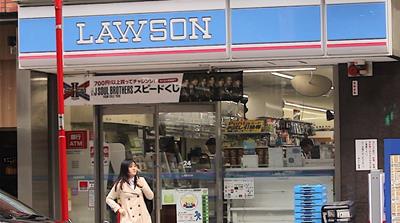Open most hours: The labour woes of Japan’s convenience stores
Japan is opening the door to more migration to counter the tight labour market.

Tokyo, Japan – Mio Kato’s first few months in Japan were tough. Soon after arriving in 2014 from her native China, she landed a job as a clerk in one of Tokyo’s ubiquitous 7-Eleven convenience stores. Unfamiliar with Japanese coins, she accidentally short-changed a man by 10 yen ($0.10). After a tirade of accusations from the customer, Kato collapsed in a flood of tears.
“Never again! It was just too much, too tiring,” she told Al Jazeera. Kato recalls having to be on her feet for up to five hours at a time and the constant physical activity, even when there weren’t any customers. But she says it was a valuable introduction to Japan. She eventually moved on and became a Japanese citizen.
Keep reading
list of 4 itemsBehind India’s Manipur conflict: A tale of drugs, armed groups and politics
China’s economy beats expectations, growing 5.3 percent in first quarter
Inside the pressures facing Quebec’s billion-dollar maple syrup industry
Kato’s tale is emblematic of the challenges faced by both workers and corporations in Japan as they deal with a chronic labour shortage. Many companies find it hard to attract workers, and when they do, they end up forcing their employees to work excruciating hours.
Like Kato, a growing number of migrants could soon start finding work in Japan, which has traditionally been deeply wary about almost all forms of migration. Falling birth rates and an ageing population have resulted in a labour shortage that is emerging as a major hurdle to Japan’s future growth prospects.
Shrinking numbers
According to Japan’s Ministry of Internal Affairs and Communications, the population is now dropping by more than a quarter of a million people every year, with retirees making up an increasing proportion.
A survey by Persol Research and Consulting and Chuo University released last October showed that Japan will need an extra 6.4 million workers by 2030, or around five percent of the 2017 workforce.
The labour shortage can have far-reaching effects on the economy.
Masayuki Morikawa, vice president of the Research Institute of Economy, Trade and Industry, says labour shortages result in a drop in the quality of service in places like hotels, restaurants and convenience stores, which can be regarded as an increase in the effective cost of such services, even if it is not reflected in the prices consumers pay.
“As Japan’s labour market continues to tighten, many people are probably aware of the dwindling quality of services – for instance, experiencing a lengthy wait in supermarket checkout lines or for food and drink served in restaurants,” Morikawa wrote in a report last year, “Lower quality services for the same price means a price hike,” he wrote.

To counter these demographic trends, the government has started to open the door more widely to foreigners. Last December, the government passed revisions to the immigration law that aimed to bring in an additional 345,000 foreign workers on a temporary basis over the next five years.
Hotels, construction and agriculture are among the hardest-hit areas of the economy, but few industries highlight the labour crunch quite like the convenience store sector.
According to the Japan Franchise Association, by 2015, revenues in the convenience store industry rose above 10 trillion yen ($90bn). Three major chains collectively control an 80 percent share of the market – 7-Eleven Japan, FamilyMart, and Lawson.
A high-profile victim of the labour shortage was 7-Eleven Japan’s president, Kazuki Furuya. He lost his job in April after media reports highlighted tough working conditions at one of the chain’s stores.
When the owner of a 7-Eleven franchise in Osaka Prefecture refused to stay open around the clock following the death of his wife, who was also his coworker, the corporate office threatened to impose a fine of 17 million yen ($153,000), effectively taking everything the franchisee owned.
‘We should have done more’
Public revulsion led 7-Eleven Japan to issue a statement saying: “In retrospect, we should have done more to listen to the concerns of our franchisees.”
Nevertheless, the firm still has a commitment to the 24-hour business model for its more than 20,700 stores around the nation, about 98 percent of them owned by franchisees.
“Basically our business model is based on 24-hour service,” a spokesperson for Seven & i Holdings – the holding company for the 7-Eleven chain – told Al Jazeera by phone. “From the very beginning we had this 24 hour policy, and our logistics and financial model are based upon it. However, we do understand the recent issue about finding staff for the night shift, and we are trying to deal flexibly with it.”
In March, 7-Eleven Japan announced it would run a trial of having shorter hours at 10 of the corporate-owned stores in order to analyze the business impact. “The environment surrounding stores has changed, and the country’s demographic structure is set to undergo further shifts in the future,” the company said.

The other major Japanese chains such as FamilyMart and Lawson are also feeling the pinch of the labour crunch, as are the second-tier chains such as Ministop, Daily Yamazaki, NewDays, Seicomart, and Poplar. For example, FamilyMart recently announced that it too will begin experimenting with shorter business hours beginning this summer with the participation of 270 of its franchise stores based in certain designated areas of the country.
Longer term, the leading convenience store chains may begin to alleviate their labour shortage problems with increased mechanisation. 7-Eleven Japan is beginning to introduce self-service registers and create supply delivery systems making use of Artificial Intelligence. A smaller firm called Signpost Corporation has been testing a fully automated mini-store at a train platform in Tokyo. In the latter half of the 2020s, it may be possible that many convenience stores will be able to run with little or no staff on duty.
But until the day comes when robots rather than smiling staff members like Mio Kato risk the ire of short-changed, angry old men, a critical problem for Japan’s massive convenience store industry – like many other sectors of the national economy – will be the severe labour shortage.